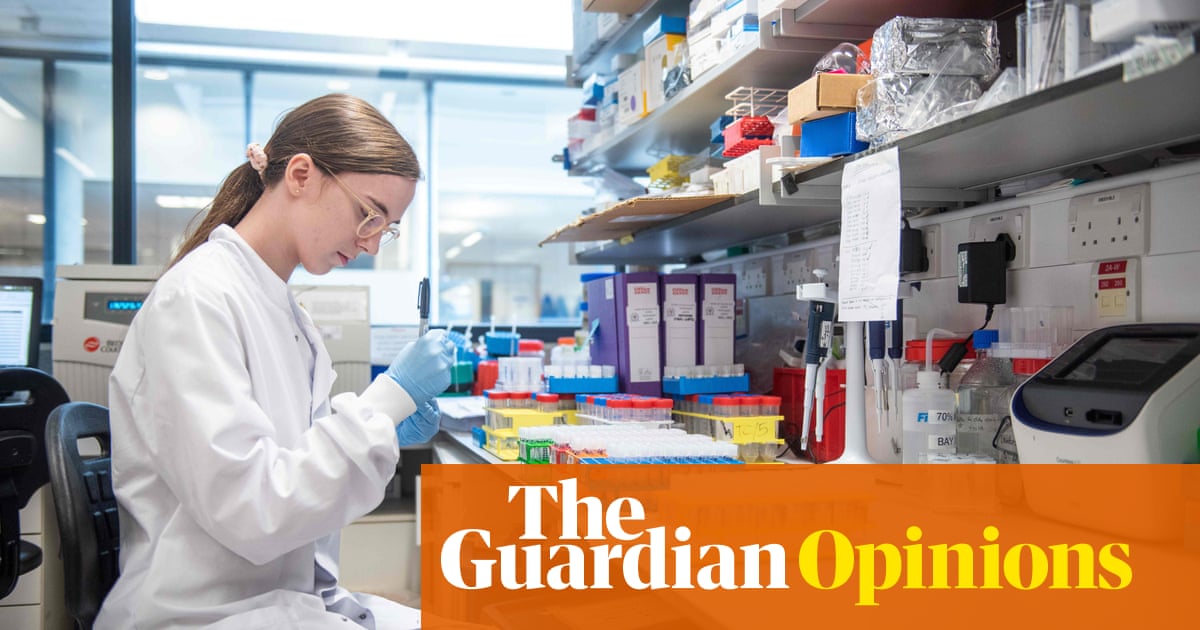
The UK’s remarkable capability and capacity in clinical research was catapulted on to the world stage during the pandemic. The Recovery trial, led by Oxford University, studied existing drugs in seriously ill patients with Covid-19 and identified the first proven and effective life-saving treatments.
The Oxford/AstraZeneca vaccine was tested in a trial of more than 10,000 people across the UK, using repurposed research infrastructure in our hospitals and universities, and saved more lives globally than any other vaccine. The mix-and-match vaccine studies known as Com-Cov showed the world how different types of Covid-19 vaccines could be used together, while Cov-Boost provided key data on booster doses that has informed global vaccine policy.
The pandemic provides crystal clarity on the importance of clinical research for our health in the grave circumstances of a global crisis. But just as important are the regular research activities across all disease areas, from diabetes to cancer, which provide the innovations and advances that transform patient outcomes. The testing of new devices, drugs and vaccines is a core activity for our future health.
The UK has long been a leader in clinical research, with the National Institute for Health Research providing infrastructure and funding for people and research programmes across the NHS. But it is clear from the recent House of Lords science and technology committee inquiry into clinical academics in the NHS that all is not well in clinical research. Recent reports suggest the number of industry-backed clinical trials has fallen by 41% since 2017, and that trials are being conducted in other countries instead.
The review correctly identifies a multitude of factors that have led to a decline in clinical trials, including the pressures on the Medicines and Healthcare products Regulatory Agency, which has a reduced capacity and increased workload post-pandemic and post-Brexit, and other aspects of the national and local trial approvals systems, which have undermined the competitiveness of the UK clinical research environment.
Furthermore, there has been an ongoing decline in the number of senior clinical academics, that is doctors who also conduct academic research, leaving a leadership gap at the highest levels. Perhaps the greatest cause for concern is the huge pressure on the workforce in the NHS, which is chronically understaffed to deliver patient care and often does not have the time to provide the essential work of clinical research.
It is very difficult for doctors to undertake detailed discussions with patients as part of the research consent process, and manage the complexity of a highly regulated study, when there are so many sick patients needing urgent treatment, which rightly takes priority over research. And for clinical teams across the NHS, where research should be fully embedded in their work, time is not routinely allocated in their contract.
A key underlying problem across the whole system is also the general shortage of critical medical and nursing staff, who are also vital to running a trial. The reasons for this shortage are not simple – there are insufficient numbers being trained, some leave the NHS early in their careers or retire early or move to better-paid jobs elsewhere, compounded by a decline in European doctors coming to the UK.
On top of this, the ageing population will increase the system pressure over the next few decades, which means we need a large increase in capacity to get ahead of frontline patient care, let alone sustain world-class research. The current support for strike action appears to me to be as much about these workload pressures and dissatisfaction with conditions for the staff to best serve their patients as it is about the money.
The ambition for an NHS that can really transform health must be to develop the clinical research leaders for the next generation, and for every clinician in the NHS capable – that is, trained – and having the capacity, in terms of protected time allocated, to deliver clinical research. But this cannot be achieved while doctors and nurses are drowning in a chronically understaffed system.
The benefits are clear. Much has been made of the health and direct economic benefits that come with testing and developing cutting-edge drugs, including early access to new medicines, and the revenues the NHS generates by running clinical trials. But health innovation can also have wider economic benefits for society including a more economically productive healthy workforce, and reduced costs of social care that come with an expectation of a healthy old age. And in the US, there is evidence that hospitals with doctors active in clinical science have better patient outcomes. So we know research is essential for future health innovation.
The NHS is in a unique position to deliver world-class clinical research at a national scale. We need the system geared towards research as an essential part of clinical care, and research leaders incentivised to pursue a career that can have a positive impact on the health of wider society. But we can’t ask our doctors to drive research in the NHS if they have so many patients to see each day they can’t even find time for lunch.
Prof Sir Andrew Pollard was chief investigator of the Oxford Covid-19 vaccine trials and is director of the Oxford Vaccine Group












